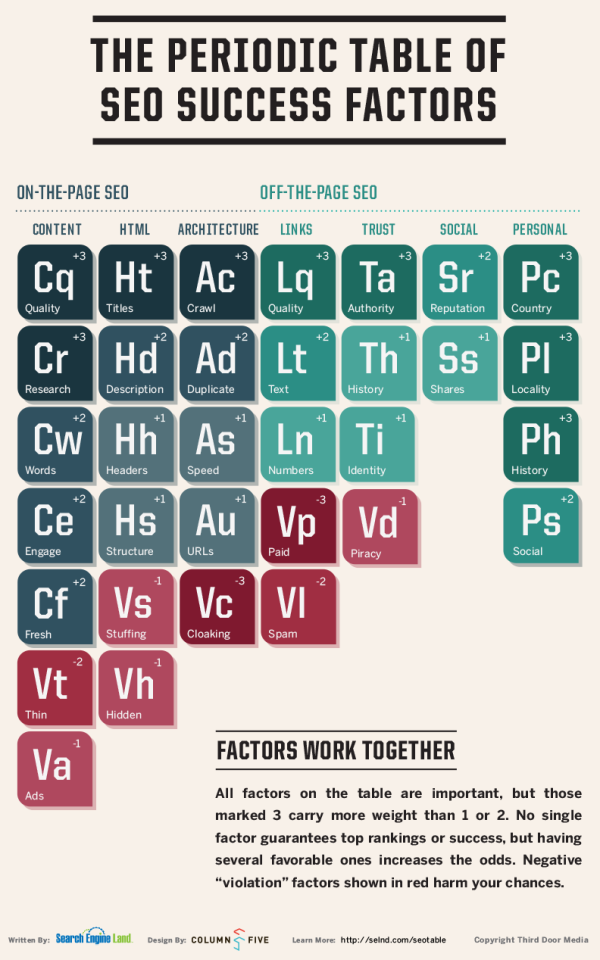B2B SEO: A Complete Guide – Increase Your Leads
B2B SEO is essential for businesses looking to sell online. There’s much more to worry about than just building a website and starting a Facebook page.
One of the most common ways that people will find your site will be through the use of a search engine, and that search engine will more likely than not, be Google. The difficulty here is that Google (other search engines are available) won’t just act as your personal directory, it will show the sites and the pages which it thinks will be most relevant to the searcher.
Making sure that you appear on these Search Engine Results Pages (SERPs) requires a good deal of thought and a bit of marketing know-how. This process is known as Search Engine Optimisation (SEO).
There is always a special role for SEO in a company marketing strategy. Professional SEO services can help to revamp any business' marketing strategy.

SEO should be an ongoing and planned-out process, no matter what industry or market you operate in. One of the most important distinctions you can make however is the kind of SEO you choose to apply, based upon whether you’re a B2C company or a B2B SEO agency.
SEO for B2C companies will vary quite significantly from SEO for B2Bs, for a host of reasons. B2C will focus on drawing in large volumes of people who are looking for a small-scale purchase and/or some entertainment.
B2B users will likely be looking for what is essentially research content, allowing them to make informed large-scale purchases on behalf of their company or organisation.
These users will be less likely to make a decision there and then, they will likely use your page initially for research and visit a number of other sites before hopefully returning to you to make the final purchase (assuming they find you that is).
Searcher Intent (Looking Beyond Keywords)
When it comes to B2B SEO, it’s important to remember that, while your target may be other companies, the input to the search engine still originates with a human being. Put very simply it’s an issue of focusing on business people searching for business things.

In SEO it’s important to focus heavily on which keywords people are using to search Google and to create content which focuses heavily on those. B2B however, should be more orientated towards what is known as Searcher Intent.
For example, someone might search the phrase ‘SEO’, but what are they actually looking for when they search that? They’re likely looking for definitions and maybe some how-to guides.
Keyword research is still important in B2B, the principle difference in terms of approach is that you want to aim for content which features a whole range of SEO keywords and phrases, but that focuses on the same general subject that will appeal to the kind of person who searches for one of those keywords.
We’ll go over this in a little more detail in a second, but for now, it’s vital to bear in mind that your target audience for B2B is likely to have a different approach from B2C.
B2C customers are likely to land on site en masse, with a certain percentage of those being converted there and then. B2B customers are less fickle and are likely to be prospecting a large-scale purchasing decision on behalf of a company.
This means that they will be looking for information, not entertainment. As well as this, the B2B audience is more often clued up on their industry, so won’t be looking to be taught how to suck eggs.
Your audience for B2B will also include a variety of decision makers from within an organisation, not simply an individual with control over their own wallet. This means that your content will need to provide relevance to more than just one kind of individual.
For example, someone from the accounts department might approach their research from a different angle than someone in IT, even though they are looking for roughly the same answers.
This means that in order to rank you need to cater your content to a full spectrum of potential readers.
B2B SEO Strategy
There are three key questions which you should set out to answer with your B2B SEO strategy:
- If you were a potential customer, what would you be looking for?
- How can you fulfil that customer’s need?
- How do you show Google that you have what the user is looking for?
The first question is something we’ve already discussed and is for the most part simply a case of understanding your B2B-specific target market. However, it is also important to know what kind of information they’re looking for, whether it’s a broad overview or a more focused step-by-step tuition.
In terms of deciding how you will meet that need, there are a few primary methods you can opt for. The first is through content such as this, a ‘complete guide to … ‘ type article, providing a broad but in-depth study of a certain topic.
This will target individuals looking to gain a broader insight into a topic and is known as cornerstone content.
More specific searches are where the use of ‘how to … ‘ guides comes into its own. These focussed tuition-style features not only educate with regards to a more niche subject and provide excellent value for the reader but also establish you as an authority on the subject.
Once you’ve established what your market is looking for and how you’re going to give it to them, it’s then time to prove it to the search engines.
This can be achieved in a variety of ways. Primary among these is providing content that meets the needs of the user. Google will notice how many people read your content when searching a specific term and rank it accordingly based on how useful it is to those who visit.

As well as this, you can make use of related terminology. Related terminology is essentially keywords that link to a keyword. One of the easiest ways of finding some of these for a given subject is to put your subject or product into Wikipedia and take note of the subsections on the left-hand side of the relevant page.
Another major tactic is to build links to your page. Getting other credible sites to link back to your content shows Google that your content is trustworthy and link-worthy. This again will make it more likely to be ranked above other content.
The best way to go about this simply by approaching credible site owners and asking. You have nothing to lose by showing your link-worthy content to someone and just politely asking for them to include a link on their site.
The other approach is more of a ‘you scratch my back I’ll scratch yours.’ Say you write some content and include within it a link to someone else’s page, you could then approach that person and simply ask if they could return the favour. This will help both of you.
From this information you can then create content that touches upon as many of these as it can, Google likes this as it shows that your content is as relevant to as much of the subject at hand as possible.
This also takes us back to the subject of keyword research, and the methods you should use.
It’s important to know what’s already working for you, which you can find out using Google search console or through a dedicated keyword tool. This can then be collated with what’s working for your competition, your complimenters and relevant digital publications.
The keywords that are already performing well for yourself and others should provide the basis for your next steps and point you in the right direction.
Once you have these keywords, the next step is to group them by searcher intent. As mentioned before, this is a matter of considering what someone who searches these keywords might be looking for.
Once grouped, you can then begin to consider writing content to meet each user intention.
Keyword Research in B2B SEO
Due to the specific nature of B2B, the SEO needs to get more specific too. This is achieved through the increased use of long-tail keywords, as opposed to the short-tail keywords used in B2C.
Long-tail keywords are essentially just that, long keywords, they’re longer, more specific phrases which can be used to target a more specific and well-informed audience. When conducting research into which long-tail, or indeed short-tail, keywords it’s important to pick your focus.
Keywords of any length with a high search volume will be more difficult to rank for, whereas those with a low search volume tend to easier to rank for which is ideal in terms of ROI.
In terms of goals for B2B SEO, these are obviously going to be a little different from B2C. B2C SEO will focus on drawing in large numbers and converting some into customers via a relatively small purchase almost on the spot.
B2B will focus on allowing searchers to access information that will help them perform their job when tasked with looking into a large-scale purchase. This process of essentially just showing that you know what you’re talking about is important as it builds trust, meaning searchers are more likely to put your name forwards in discussions with colleagues.
This also means that when pouring through the analytics for your content you won’t necessarily be looking for huge conversion figures. It’ll be more informative for you to examine bounce rates and how long users spend on your pages and how many times the same people come back.
Content creation styles should vary from B2C to B2B too. The content you create for B2B, in general, will be longer and more in-depth that B2C content.
Pros/Cons of B2B SEO vs. B2C SEO
As it’s been made abundantly clear throughout this article, B2C SEO and B2B SEO share a few overlaps but are very different approaches.
The major difference between the two is found when you consider your audience. A B2C audience is likely to be very casual, on the lookout for a bit of entertainment or some simple online shopping.
A B2B audience is likely a decision maker within a company, tasked with conducting research prior to large capital investment. This means they will be well-informed and on the lookout for in relevant, in-depth content that will help them with their work.

This difference will affect your whole strategy from the type of content you produce to the language you use.
B2B SEO content should, as with any content, be focused around the user’s needs and wants. Content that people find jarring or unhelpful won’t perform very well in any sense, let alone in SEO.
Whereas B2C SEO will involve trawling through Google keywords and producing huge lists of words you’d like to scatter throughout to draw people in, B2B will focus more on longer, low-search volume keywords.
This means that more time will be spent on the creation of the content itself, rather than on producing heavily marketable content to satisfy a more casual audience.
B2B SEO and the Sales Funnel
When applying B2B SEO to the Sales Funnel, the first step is search rankings.
Where you appear on the search rankings is vital, but also appearing repeatedly and for different people within the same organisation.
Large scale purchasing decisions for companies will likely not be left to one individual, so ensuring that your service or product is displayed to a variety of people who are essentially searching the same subject just using different terms is understandably important.
This promotes you as an authority on the subject as a whole and begins the crucial step of building trust.
A key factor to remember throughout all of this is the amounts of money involved. B2B usually involves a fewer number of purchases at a much higher cost than B2C, meaning people will be more likely to put in the research time before committing.
This means they will conduct multiple searches across multiple sessions and often, as mentioned, involve numerous people. Ideally, you want to rank highly nearly every time one of these people searches for something related to your topic.

The next step is building trust. While this can begin to be achieved through repeatedly ranking, the primary method here is to write content that is authoritative, interesting and doesn’t immediately jump on the hard sell.
In order to establish yourself in the mind of the user as an authority, it is necessary to write authoritatively. Make sure you’re providing the reader with information that is useful to them and provides value in some way.
In conjunction with this the content does, as always, need to be engaging and provide the reader with a positive experience. In B2B, this is the first real means of engaging with potential customers, so ensuring that they have a positive experience with your content and your site as a whole is vital.
Achieving these two steps should, hopefully, lead the user to the final stage: conversion.
Once you’ve proved that you are an authority on the subject at hand and that you can provide the user with something others can’t, even if that something is as simple as a more positive feeling, they might finally be ready to purchase.
As with any industry or market that is centred around the online world, as most do now, SEO for B2Bs is incredibly important. Above all else though, if you take away one thing from all this let it be the importance of knowing your market and taking a thorough approach to your SEO.
Like I said before, there is always a special role for SEO in a company marketing strategy.
To find out what SEO could for your B2B marketing, contact us today.